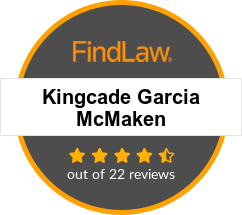Four common myths about filing personal bankruptcy in Florida
There are many myths that surround personal bankruptcy that often prevent those in significant debt from filing.
When people in Florida find themselves overwhelmed by debt, they often consider filing for either Chapter 7 or Chapter 13 bankruptcy. Although personal bankruptcy is designed to provide financial relief, many debtors refrain from filing because of the many myths that surround this financial and legal process.
1. Filers lose everything
Many people assume that they will automatically lose their house, vehicles and other valuable assets when they file for bankruptcy. However, in many bankruptcy cases, particularly Chapter 7 cases, many debtors do not end up giving up possessions. This happens because debtors can claim exemptions for assets that are necessary for their day-to-day life. Accepted exemptions often vary by state, so those interested in filing should make sure they are aware of what these are before moving forward.
2. Only the financially irresponsible file bankruptcy
A common misconception exists that only people who cannot manage their money well end up needing to file bankruptcy. However, many bankruptcies are the result of unfortunate situations rather than financial irresponsibility. For instance, many people file bankruptcy after losing their job, accruing significant medical bills or going through the divorce process.
3. Bankruptcy relieves all debts
Although personal bankruptcy is designed to give debtors a fresh financial start, Chapter 7 and Chapter 13 bankruptcy do not relieve every single type of debt. Generally speaking, if the debtor is personally responsible for certain debts, these will not be discharged during the bankruptcy process. These types of debts often include recent taxes, debts incurred as a result of fraud or child or family support payments.
4. Paying off debt is the better option
Before thinking about bankruptcy, many debtors attempt to pay off as much debt as they can to find financial relief. Many debtors also attempt to do this because they believe paying off their debts completely over time is better than moving forward with the bankruptcy process. Even though bankruptcy is considered a serious decision, it is generally the best option for people with debts that exceed 50 percent of their annual income or for those who cannot reasonably pay off their debts within a five-year time period.
Contact an attorney
Those in significant debt in Florida may wonder if bankruptcy is the right option for them. When this occurs, those interested in this form of financial relief should contact an attorney in their area who can provide further information about this legal process.
















